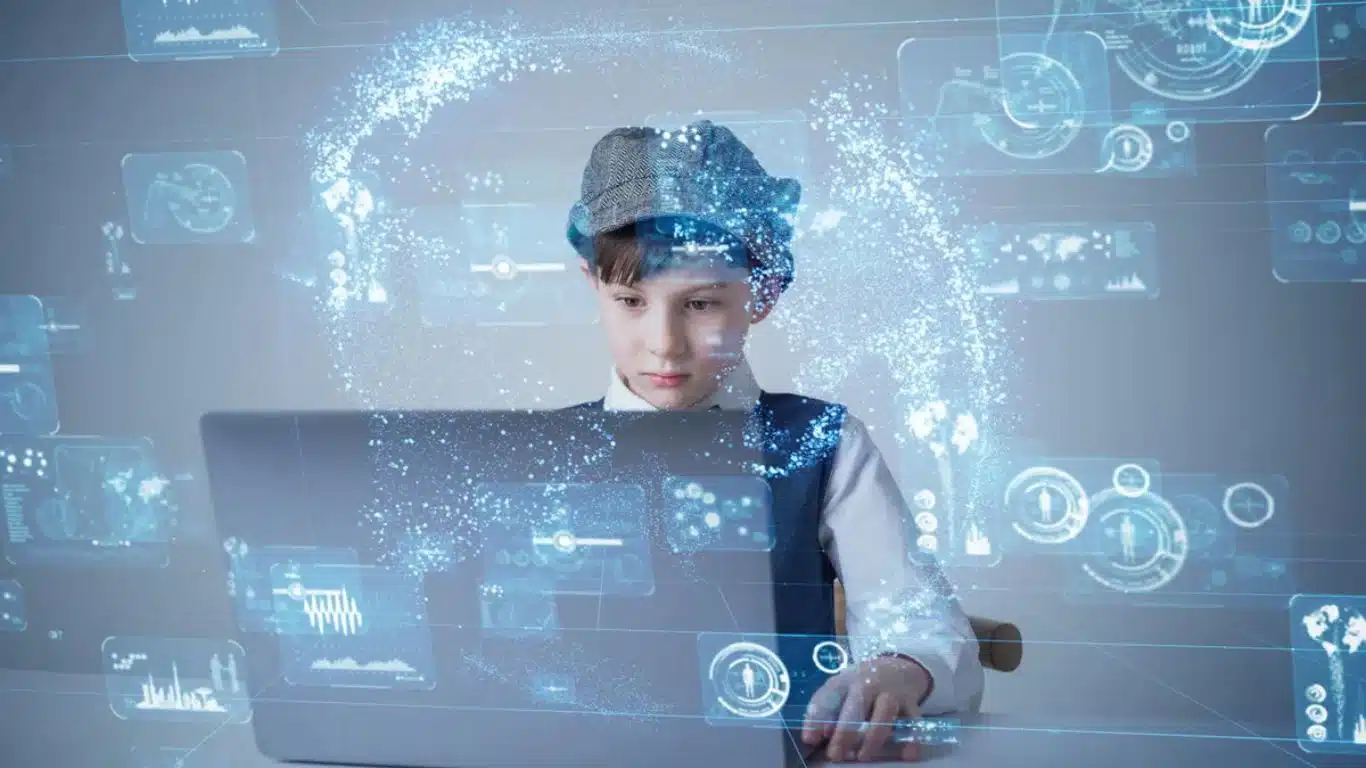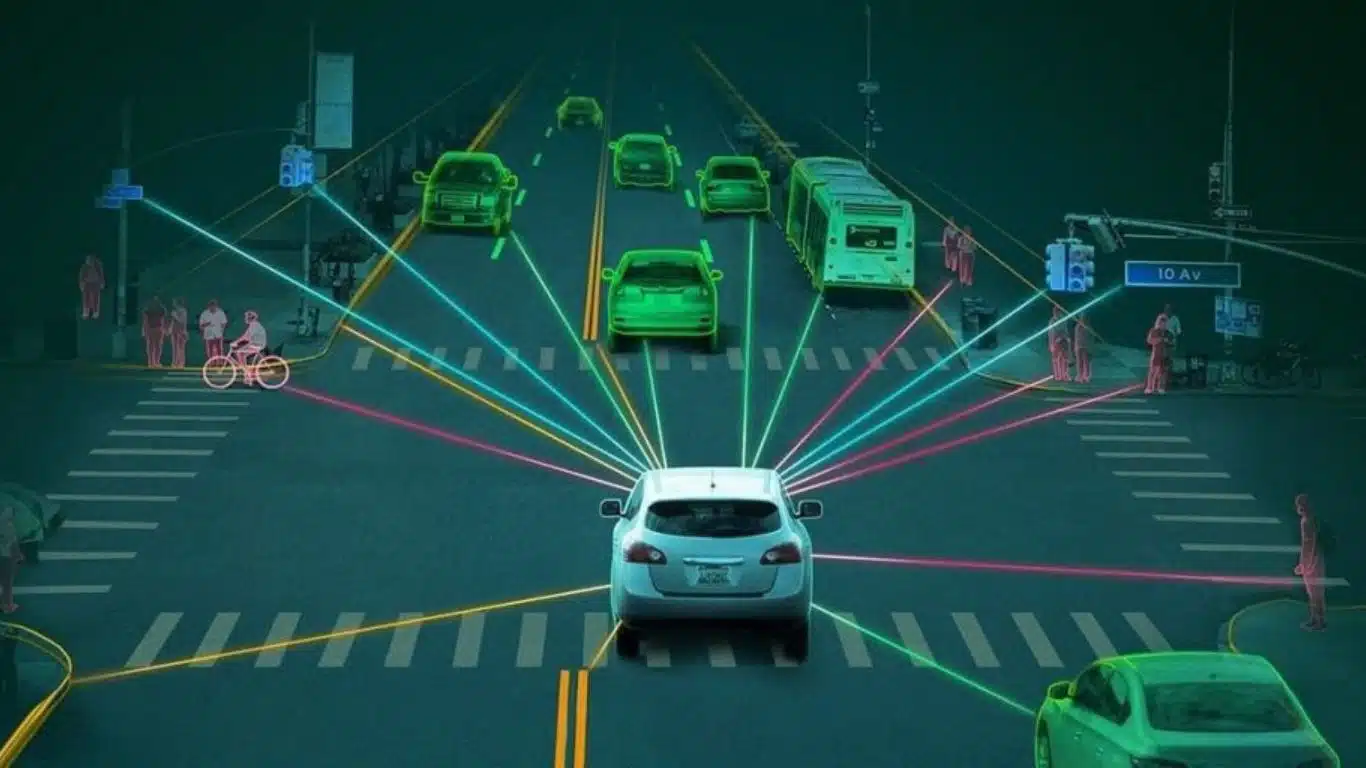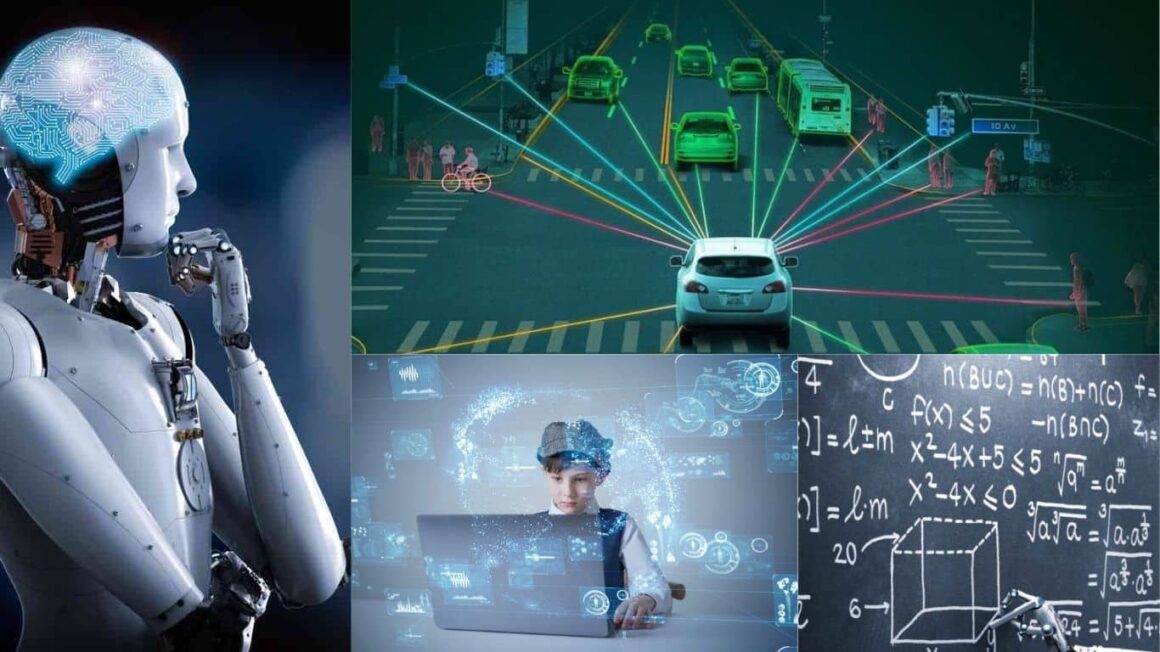- It can also provide data-driven insights to improve teaching strategies.
- AI can also optimize water usage in various sectors, such as agriculture and industry, through predictive analytics, min…
- AI can also predict water demand based on various factors, aiding in better planning and management.
- AI also offers substantial potential for economic modeling, a vital tool for understanding and forecasting economic tren…
- Machine learning techniques can predict economic trends and potential crises, helping policymakers to take proactive mea…
- AI can also model the potential impact of various policy decisions, providing data-driven insights for effective strateg…
How AI Can Solve Global Challenges: In today’s interconnected world, we face a myriad of complex global challenges that require innovative solutions. One powerful tool at our disposal is artificial intelligence (AI), a technology capable of revolutionizing the way we approach these issues. AI possesses the potential to tackle critical problems ranging from climate change to education. By harnessing the immense computational capabilities and data processing prowess of AI systems, we can gain deeper insights, develop predictive models, and implement efficient strategies. This article delves into the transformative power of AI, exploring how it can be harnessed to address global challenges, foster sustainable development, and create a brighter future for all.
How AI Can Solve Global Challenges
Climate Change
AI holds significant potential to combat climate change. It can streamline energy use in buildings, enhancing energy efficiency. AI can also optimize renewable energy operations, boosting their output and reducing reliance on fossil fuels. Its predictive capabilities allow for accurate forecasting of extreme weather events, assisting in preparation and response. Emission monitoring enabled by AI contributes to tracking and reducing greenhouse gases. Moreover, machine learning algorithms can model climate change impacts more precisely, aiding policymakers in developing informed strategies. In sum, AI acts as a powerful tool in the global fight against climate change.
Education

It can customize teaching methods and content to cater to individual student’s needs, improving engagement and outcomes. AI-powered platforms can identify learning gaps and suggest tailored resources. Additionally, AI tutors can offer round-the-clock academic support, enabling students to learn at their own pace. For teachers, AI can automate administrative tasks, allowing them to focus on instruction and student interaction. It can also provide data-driven insights to improve teaching strategies. In remote or underserved areas, AI can bridge the education gap by facilitating e-learning. However, equitable access to AI tools and the ethical use of data remain crucial considerations.
Agriculture
Artificial Intelligence is playing an increasingly crucial role in modernizing agriculture and ensuring food security. It can enhance crop yields by determining optimal irrigation and fertilization schedules, reducing resource waste. Using drones and sensors, AI can monitor crop health and growth, detecting any issues early to prevent significant losses. Predictive analytics can foresee disease or pest outbreaks, allowing for early intervention. Additionally, AI can assist in livestock management by tracking health and productivity. It can also provide insights into market trends and crop pricing, aiding farmers in decision-making. By making agriculture more efficient and sustainable, AI contributes to meeting the growing global food demand.
Water Management
AI can also optimize water usage in various sectors, such as agriculture and industry, through predictive analytics, minimizing waste. In water supply systems, AI can detect leaks or inefficiencies, aiding in timely maintenance. Furthermore, AI can automate and enhance wastewater treatment processes, contributing to water recycling and conservation efforts. Real-time monitoring of water quality in rivers, lakes, and reservoirs is another application, enabling quick response to pollution incidents. AI can also predict water demand based on various factors, aiding in better planning and management. Through these ways, AI can help achieve water sustainability and security.
Poverty and Inequality
Through analyzing a wide array of data, AI can identify areas of severe poverty and social disparity, enabling targeted policy interventions. It can enhance the efficiency of social programs by predicting which interventions will have the most impact, thus ensuring resources are utilized effectively. AI can also aid in job matching and skill development, helping those in poverty access employment opportunities. Furthermore, it can help monitor progress towards poverty reduction goals. However, to ensure AI doesn’t exacerbate inequality, it’s crucial to address issues such as equitable access to AI technology and potential job displacement caused by automation.
Transportation

AI has the potential to dramatically reshape transportation systems around the world. One of the key applications is autonomous vehicles, which can improve traffic flow, reduce carbon emissions, and lower accident rates by eliminating human error. AI can also be used in traffic management systems to analyze and predict traffic patterns, helping to design more efficient routes and reduce congestion. In public transportation, AI can optimize schedules and routes based on real-time demand. For logistics and supply chain management, AI can optimize delivery routes, predict potential disruptions, and increase overall efficiency. Thus, AI in transportation can enhance mobility, sustainability, and safety.
Disaster Response
Through data analysis, AI can predict natural disasters such as earthquakes, hurricanes, or floods, enabling early warnings and evacuation planning. During a disaster, AI-powered drones or robots can assist in search and rescue operations, accessing areas that are dangerous for humans. Post-disaster, AI can help in damage assessment by analyzing satellite or drone imagery, speeding up recovery efforts. It can also aid in coordinating relief efforts, managing logistics, and ensuring resources are distributed efficiently. Hence, AI can significantly improve disaster resilience and response, potentially saving lives and reducing economic loss.
Urban Planning
It can analyze patterns in traffic, population density, public service usage, and other factors to aid in designing more efficient and livable urban spaces. AI can assist in predicting future needs of cities, allowing planners to proactively develop infrastructure. It can optimize the integration of various city services, improving accessibility and convenience for citizens. AI can also simulate the impacts of different planning strategies, helping policymakers make informed decisions. Furthermore, in the era of smart cities, AI can facilitate the management and coordination of diverse urban systems, contributing to more sustainable and resilient cities.
Cybersecurity

AI is increasingly becoming a crucial component of cybersecurity. Its ability to learn and adapt makes it effective in detecting and responding to cyber threats swiftly and accurately. By analyzing patterns in data, AI can identify anomalies that might signify a breach, often before a human analyst would. Automated responses to attacks can also reduce the window of exposure, minimizing potential damage. Furthermore, AI can predict future threats based on current trends, allowing for proactive defense measures. In the realm of user authentication, AI can enhance security through biometrics, behavioral analytics, and risk-based authentication. However, as AI advances cybersecurity, it’s essential to remember it can also be used maliciously, necessitating continual updates and improvements in defense strategies.
Economic Modeling
AI also offers substantial potential for economic modeling, a vital tool for understanding and forecasting economic trends. AI algorithms can sift through vast amounts of economic data, finding complex interrelationships and patterns that might be missed by traditional models. Machine learning techniques can predict economic trends and potential crises, helping policymakers to take proactive measures. AI can also model the potential impact of various policy decisions, providing data-driven insights for effective strategy formulation. Furthermore, it can track real-time economic indicators for immediate analysis and response. However, the effectiveness of AI in economic modeling depends on the quality and breadth of data it’s trained on, highlighting the importance of reliable data sources.
Also Read: How AI Brings Us Closer to Communicating with Animals



